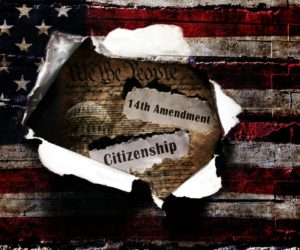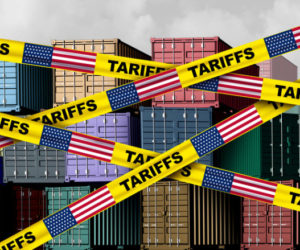
Burmese leader Ms Aung San Suu Kyi, 65, who has spent 15 of the past 21 years under house arrest, could be released tomorrow (Saturday) by Myanmar’s military junta. The Burmese junta says it is preparing for the release of Nobel laureate Suu Kyi after international condemnation (including president Barack Obama’s recent strong remarks) of last weekend’s election and fears that a delay could spark demonstrations, reports The Australian.
” ‘We haven’t got any instructions from superiors for her release yet,’ a government official told AFP yesterday. ‘But we are preparing security plans for 13 November.’ Trenchant international criticism of Burma’s first general elections in 20 years is believed to have helped Ms Suu Kyi’s chances of freedom. Analysts predicted the regime would use her release to deflect attention from claims of vote fraud and ballot box stuffing.
“Her lawyers said she was due to be released on Saturday, and many believe that voter frustration could explode into civil unrest if she remains locked up. Several have formally complained to the election commission, and the military-aligned National Unity Party is preparing legal action. Ms Suu Kyi’s National League for Democracy convincingly won the 1990 election, but the result was annulled by the ruling military regime.
“More recently the NLD was formally dissolved and it boycotted the elections. Nyan Win, NLD spokesman and one of Ms Suu Kyi’s lawyers, said the party had already listed members who would speak to her after her release. ‘We will draw up a plan for the future after she meets with these people,’ he was quoted as saying, adding the NLD had not been told when she would be released.” More here…
Betwa Sharma wrote in The Huffington Post: “Even as President Barack Obama endorsed India’s candidacy for the U.N. Security Council, he scolded New Delhi for not being tough on its neighbor Burma that has just pulled off dodgy elections, which are also the first in nearly two decades. ‘Faced with such gross violations of human rights, it is the responsibility of the international community, especially leaders like the United States and India, to condemn it,’ Obama told India’s parliament on Monday.
” ‘If I can be frank, in international fora, India has often shied away from these issues,’ he said. For those who give little credence to the U.S. preaching on human rights — having supported a fair share dictators and rogue regimes — there are many activists and analysts that have also echoed similar rebuke.
“Nobel laureate in economics, Amartya Sen, for instance, described Indo-China behavior in Burma as ‘exceptionally crude and valuationally gross. When our power to influence the world was zero, we spent our time lecturing the world on morality. And when we get a bit of power, although not as much as China, then we completely abdicated that responsibility,’ said Sen recently at John Hopkins University.”More here…
The Independent reports that anticipation about the possible release of Ms Suu Kyi was further fuelled by a report earlier this week by the Agence France-Presse, quoting an unidentified government official who said she would be set free. Speculation mounted further yesterday when it was reported that one of her sons, Kim Aris, had finally been granted a visa to travel to Burma to see his mother for the first time in a decade. However, the purported source of that report, Nyan Win, said he could not confirm that the visa had been granted. More here…
Photo above: A Burma democracy activist in Bangkok holds up a poster showing Aung San Suu Kyi
Swaraaj Chauhan describes his two-decade-long stint as a full-time journalist as eventful, purposeful, and full of joy and excitement. In 1993 he could foresee a different work culture appearing on the horizon, and decided to devote full time to teaching journalism (also, partly, with a desire to give back to the community from where he had enriched himself so much.)
Alongside, he worked for about a year in 1993 for the US State Department’s SPAN magazine, a nearly five-decade-old art and culture monthly magazine promoting US-India relations. It gave him an excellent opportunity to learn about things American, plus the pleasure of playing tennis in the lavish American embassy compound in the heart of New Delhi.
In !995 he joined WWF-India as a full-time media and environment education consultant and worked there for five years travelling a great deal, including to Husum in Germany as a part of the international team to formulate WWF’s Eco-tourism policy.
He taught journalism to honors students in a college affiliated to the University of Delhi, as also at the prestigious Indian Institute of Mass Communication where he lectured on “Development Journalism” to mid-career journalists/Information officers from the SAARC, African, East European and Latin American countries, for eight years.
In 2004 the BBC World Service Trust (BBC WST) selected him as a Trainer/Mentor for India under a European Union project. In 2008/09 He completed another European Union-funded project for the BBC WST related to Disaster Management and media coverage in two eastern States in India — West Bengal and Orissa.
Last year, he spent a couple of months in Australia and enjoyed trekking, and also taught for a while at the University of South Australia.
Recently, he was appointed as a Member of the Board of Studies at Chitkara University in Chandigarh, a beautiful city in North India designed by the famous Swiss/French architect Le Corbusier. He also teaches undergraduate and postgraduate students there.
He loves trekking, especially in the hills, and never misses an opportunity to play a game of tennis. The Western and Indian classical music are always within his reach for instant relaxation.
And last, but not least, is his firm belief in the power of the positive thought to heal oneself and others.
















